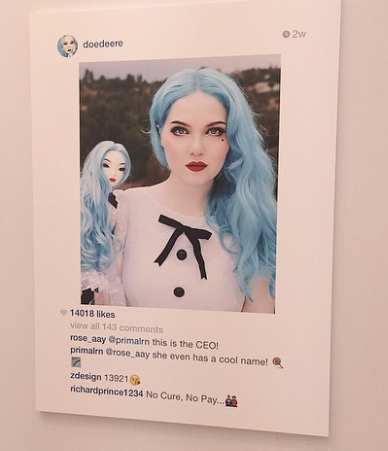Sullivan has filed an amicus curiae (friend of the court) brief in the upcoming Supreme Court case Andy Warhol Foundation for the Visual Arts, Inc. v. Goldsmith. The brief was filed as counsel of record for copyright scholar Philippa S. Loengard, the Kernochan Center for Law, Media and the Arts at Columbia Law School. The case concerns the applicability of Section 107 of the Copyright Act, which permits as a fair use that would otherwise be copyright infringement—to a print made by Andy Warhol from a photograph of the musician Prince by photographer Lynn Goldsmith. In particular, the question presented to the Court addresses the implications of the Court’s holding nearly thirty years ago in Campbell v. Acuff-Rose Music, Inc., 510 U.S. 569, 579 (1994) that allowed for the possibility that a secondary use could be considered a fair use if it were sufficiently “transformative.” What exactly that means in the context of visual art has been a fraught—and at times incoherent—subject in recent years. Our brief explains that the Court should return the analysis of fair use to the four factors established by Congress. In the case of the first of the four factors, the Court should focus on the statutory language of the purpose and character of the works. By contrast, the inquiry into the meaning or message of the works advocated by the Warhol Foundation and the amici supporting it is a fool’s errand that provides no clarity and would render the copyright in photographs effectively unenforceable. This case is not a battle between Lynn Goldsmith and Andy Warhol; those artists proved entirely capable in 1984 of arranging the balance for themselves. It is a battle between a maximalist view by the Warhol Foundation that dismisses the value of photography as a creative medium at all.
Sullivan files Supreme Court Amicus Brief to Clarify Fair Use and Transformativeness in Warhol’s Use of Lynn Goldsmith’s Prince Photos
Topics: Copyright Act, Roy Orbison, Toward a Fair Use Standard, Campbell v. Acuff Rose Music Inc., Kernochan Center for Law Media and the Arts, Philippa S. Loengard Esq., Columbia Law School, Prince, transformative, Andy Warhol, Fair Use, Andy Warhol Foundation for the Visual Arts, Condé Nast, People Magazine, The Time, 2 Live Crew, Death Valley, Velázquez, Rubens, King Philip IV of Spain, Las Meninas, Section 107, Billboard, Pierre N. Leval, “Oh, Pretty Woman”, Mickey Mouse
Fair Use Fool me Twice, Shame on Me—Richard Prince Goes Trolling on Instagram But May Have a More Pedestrian Problem
Few art law cases have received as much attention as that of Richard Prince and his dispute with Patrick Cariou over the latter’s Yes, Rasta photographs that Prince altered, defaced, and otherwise rearranged for his Canal Zone series. Prince has now garnered renewed attention for his appropriation of Instagram images in a set of works he has been selling at a Gagosian Gallery show called “New Portraits" (and in various other venues over the last few months). He escaped liability for infringement of Cariou’s pictures (though the case settled after remand; several infringement claims were still in play when the parties settled). Can he do so again? If this recent effort is not infringement, it certainly begs the question of whether the fair use exception has swallowed the rule. Lastly, Instagram itself may have prohibited the entire exercise in its terms of use, a possible avenue to short-circuit the entire copyright exercise.
Topics: Richard Prince, Copyright Act, DoeDeere, 2LiveCrew, Prince v. Cariou, Roy Orbison, Canal Zone, Patrick Cariou, Internet, Yes Rasta, 17 U.S.C. § 107, Instagram, Copyright, Gagosian Gallery, transformativeness, Fair Use, § 107
Cariou Petitions Supreme Court to Review Richard Prince Fair Use Decision
Patrick Cariou, after winning his copyright claim against Richard Prince in the District Court in 2011, suffered a stinging reversal earlier this year when the Second Circuit found in Prince’s favor as to his use of Cariou’s Yes, Rasta series in the Prince Canal Zone collages. The Second Circuit decision has been widely derided by copyright analysts, who apart from the relative merits of Cariou vs. Prince found the decision unclear as guidance to future artists and copyright holders. For the Art Law Report’s coverage of the case, click here.
Topics: Cariou v. Prince, Richard Prince, Roy Orbison, Canal Zone, Patrick Cariou, Campbell v. Acuff Rose Music Inc., Yes Rasta




